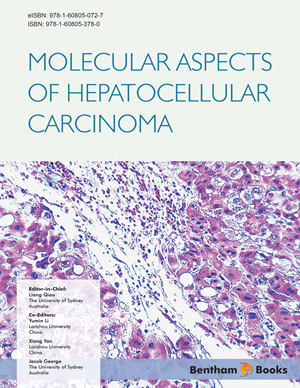Abstract
Cancer metastasis is a highly complex event involving the generation of new blood and lymph vessels, growth, invasion with breakdown and crosstalk of the host matrix, escape from immune surveillance, transport to other sites with adhesion, and subsequent invasion of the organ that hosts the metastasis. Several participants in this tightly orchestrated procedure are important, for instance cell-adhesion molecules, signaling pathways, immune cells, enzymes and receptors, acting all in concert to guide the tumour cell to its new home. Looking at this complex network it becomes clear why therapeutic approaches are often disappointing and why there is still no cure for cancer. Further knowledge and research of the molecular mechanisms leading to this disastrous event are badly needed to find new therapeutic agents and to improve the quality of life and prognosis of patients with cancer. In this chapter we discuss the molecular mechanisms of liver cancer metastasis and their impact on discovering new biomarkers and therapeutic strategies.
Keywords: Cancer, metastasis, cadherins, immunity, hypoxia, angiogenesis, migration, apoptosis, growth factors.






















